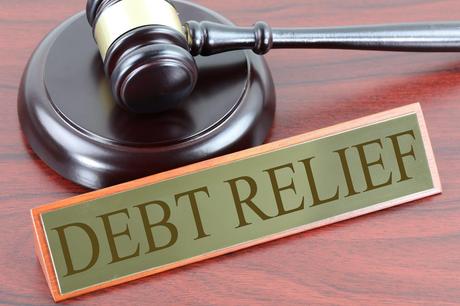
Illegitimate debt relief companies take advantage of your financial problems to make money to benefit themselves. Such companies often charge huge upfront fees and fail to offer you the services you need. Many say they offer programs that could help you get out of debt faster and for less. This quite logically would legitimately raise the question; is debt relief a scam?
How Debt Relief Programs Help
When properly executed, debt relief can help you solve financial problems. The most common debt relief options include settlement, consolidation and credit counseling. Consolidation and counseling can be useful if you're just starting to run into trouble, or can see it brewing on the horizon.
As Freedom Debt Relief Company Reviews illustrate, debt settlement can help you resolve the issue for a lower amount than currently owed, if your situation is such that the other two options aren't feasible. However, you will encounter potential tax issues and your credit score will take another hit as well.When done earnestly, debt relief is not a scam. The process can truly help individuals resolve their financial problems.
Now, with that said, you do have to be careful to avoid nefarious operators.
Signs of a Debt Relief Scam
Unsolicited Approaches-Be wary if you unexpectedly receive a call from a would-be provider offering to help you implement the debt settlement process. These calls are typically in the form of recorded messages. Scammers who have no intention of helping you solve your problem often run the companies behind them. They're only interested in taking your money.
Advance Payment - Some companies may also ask you to pay an advance fee before they start the settlement process. Such a payment is considered illegal according to US law. If a debt relief provider promises to negotiate with your creditor after paying them, you should not trust such a company. You should find a reputable debt relief service provider such as Freedom Debt Relief that invoices you after the debt is settled.
Unreasonable Promises - A debt relief company may offer you unreasonable promises, including negotiating with your creditor to reduce your debt. There's no guarantee that a creditor will forgive your debts. A trusted debt relief service provider can promise to negotiate with your lender to lower the amount you owe them and afterward give a detailed explanation of the possibilities of the negotiations to yield results or not.
Lack of Transparency - If a company tells you to stop communicating with your creditors and fails to warn you of consequences associated with it and the whole debt settlement process, then it could be a scam. Additionally, when signing up for a debt relief program, the company you choose should tell you the possible consequences when you stop making payments to your lender.
Federal Trade Commission Advice
According to the FTC , debt relief service scams target consumers with significant credit card debt by falsely promising to negotiate with their creditors to settle or otherwise reduce consumers' repayment obligations. Many cases have been filed against such individuals and organizations. You'll do yourself a favor by taking the time to read through some of those cases before you go shopping for assistance.
As mentioned above, debt relief most assuredly is not a scam, however there are a lot of people out there taking advantage of it to run scams. Paying attention to the tips listed above and what you'll find at the FTC website will help you avoid falling prey to these people.
